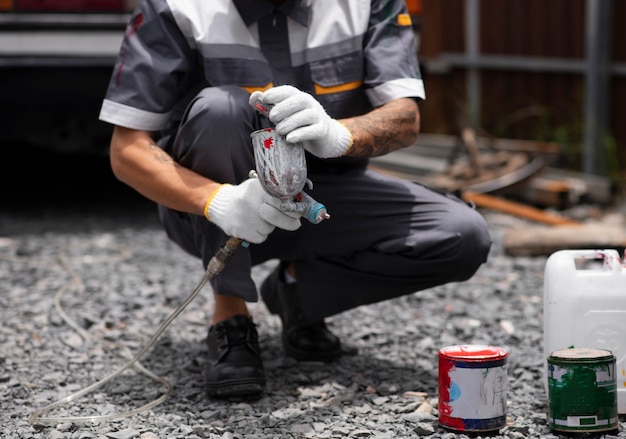
Choosing the Best Soil Stabilization Contractors Near You
Soil stabilization is a crucial process in construction and landscaping projects, ensuring the soil is adequately prepared to support structures and prevent erosion. As a project owner or manager, selecting the right soil stabilization contractor can make a significant difference in the durability and longevity of your project. With numerous contractors available, making the right choice may seem daunting. This article provides a comprehensive guide to help you choose the best soil stabilization contractors near you, ensuring your project is completed efficiently and effectively.
Understanding Soil Stabilization
Prior to selecting a contractor, it's essential to understand what soil stabilization entails. The process involves modifying soil properties to improve its strength and stability, making it suitable for construction. This can be achieved through mechanical means, chemical additives, or both. A proficient contractor will assess your site's specific needs and determine the most appropriate stabilization method.
Key Factors to Consider When Choosing a Contractor
Experience and Expertise
When evaluating potential contractors, experience and expertise should be top priorities. Consider the following:
- Years of experience in the field.
- Specialization in particular stabilization methods or types of projects.
- Track record of successful projects similar to yours.
Experienced contractors are more likely to deliver quality results and handle unforeseen challenges efficiently. Read more about this topic.
Reputation and References
The reputation of a contractor is often a reliable indicator of their reliability and quality of work. Consider these steps:
- Check online reviews and ratings from previous clients.
- Request references from the contractor and follow up with past clients.
- Look for any accolades or recognitions in the industry.
Good references and a solid reputation suggest a contractor is trustworthy and delivers satisfactory results. Learn more in this detailed guide.
Licensing and Insurance
Ensure that your chosen contractor is properly licensed and insured, which protects you legally and financially. Key points include:
- Verification of the contractor's licensing with relevant state or local authorities.
- Confirmation that the contractor has adequate liability and workers' compensation insurance.
- Understanding the coverage and limits of their insurance policies.
These precautions safeguard against potential legal and financial repercussions. Explore further insights here.
Evaluating the Contractor's Approach
Assessment and Planning
A reputable contractor will conduct a thorough site assessment and develop a detailed plan tailored to your project's requirements. Consider the following:
- Does the contractor provide a comprehensive analysis of the soil conditions?
- Are they willing to explain their proposed stabilization methods and materials?
- Do they offer a clear timeline and cost estimate?
This thorough approach indicates professionalism and ensures alignment with your project goals. Find additional information here.
Technology and Equipment
Modern technology and equipment can enhance the efficiency and effectiveness of soil stabilization. Inquire about:
- The type of technology and equipment the contractor uses.
- Whether they stay updated with industry advancements.
- How these tools contribute to the quality and speed of work.
Cutting-edge technology often results in better outcomes and timely project completion. Explore further insights here.
Cost Considerations
While cost is a critical consideration, it should not be the sole deciding factor. Weigh the following:
- Compare quotes from multiple contractors for similar services.
- Avoid opting for the lowest bid if it compromises quality.
- Discuss potential additional costs or changes to the project scope.
A transparent and detailed cost evaluation ensures you receive value for your investment. Learn more in this detailed guide.
Conclusion
Choosing the best soil stabilization contractor involves careful evaluation of experience, reputation, licensing, and approach to technology and cost. By following the guidelines outlined in this article, you'll be well-equipped to make an informed decision that ensures the success and longevity of your construction project. Remember, investing time in selecting the right contractor is an investment in the quality and durability of your project. Find additional information here.